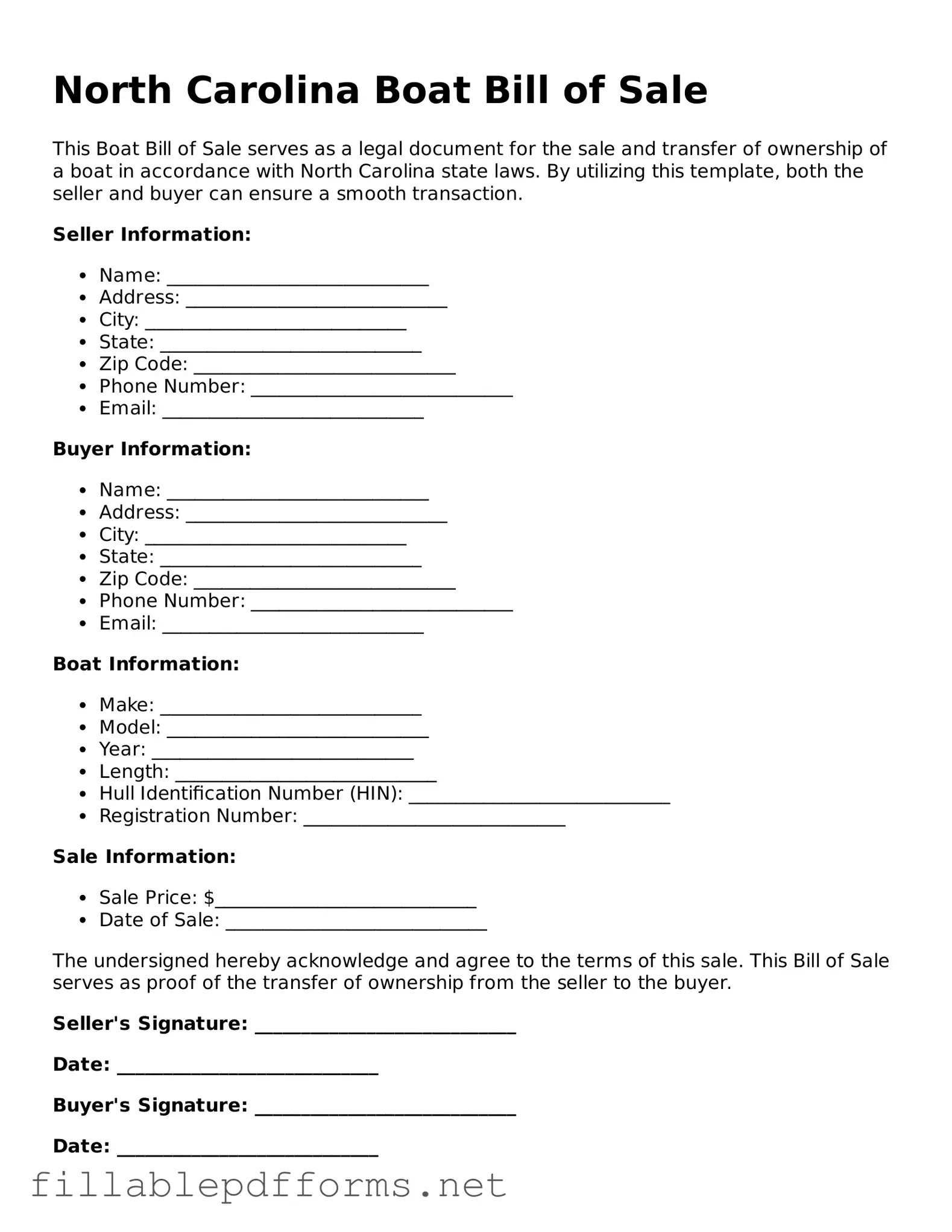Attorney-Verified Boat Bill of Sale Form for North Carolina State
The North Carolina Boat Bill of Sale form serves as a crucial document in the transfer of ownership for watercraft in the state. This form not only provides a legal record of the sale but also protects both the buyer and seller by outlining the terms of the transaction. Understanding its significance can help ensure a smooth and compliant transfer process.
Launch Editor Here

Attorney-Verified Boat Bill of Sale Form for North Carolina State
Launch Editor Here

Launch Editor Here
or
▼ Boat Bill of Sale PDF
Almost there — finish the form
Complete Boat Bill of Sale online fast — no printing, no scanning.